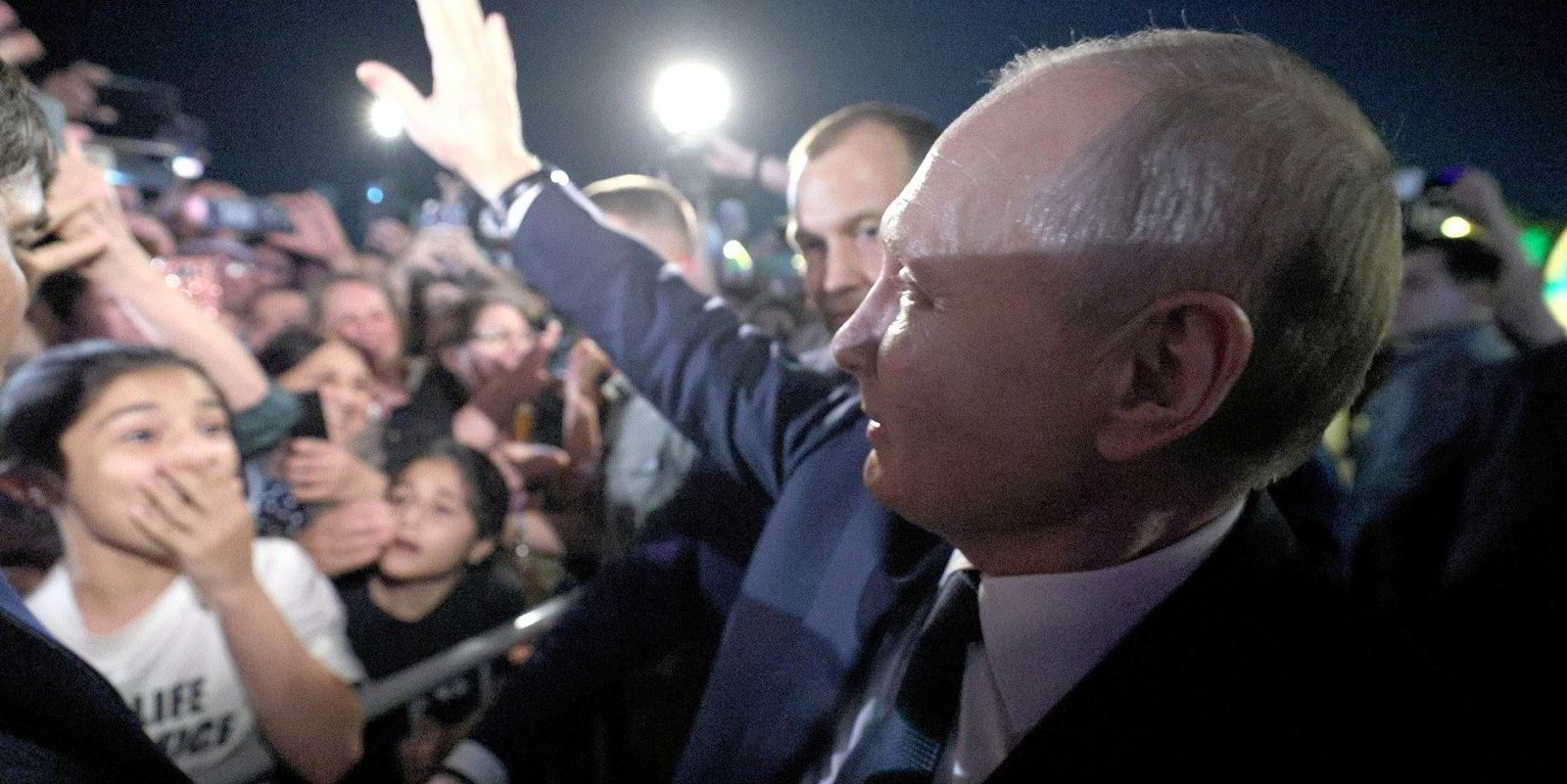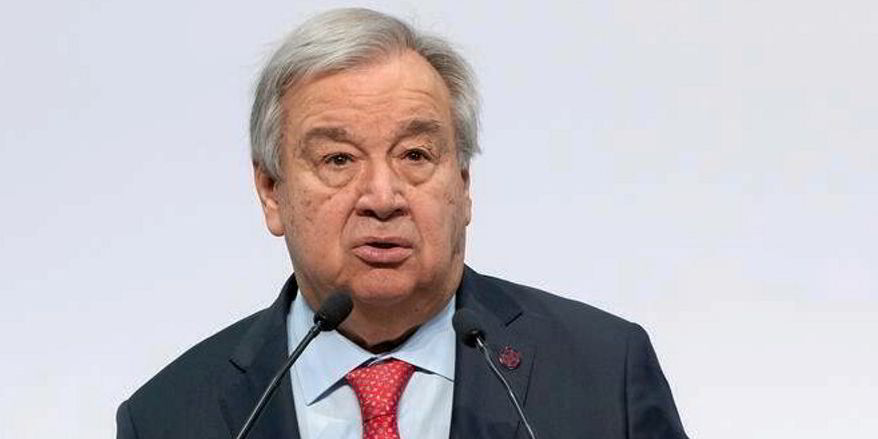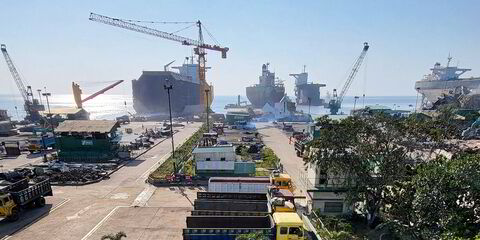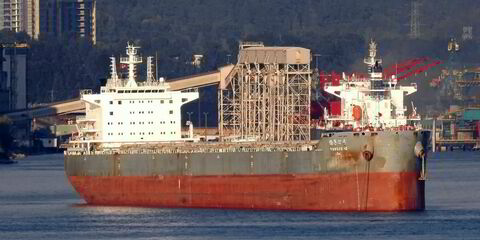Russia has not taken a final decision on whether it will agree to an extension of the Black Sea grain corridor on 17 July but time to meet its demands is quickly running out, President Vladimir Putin said.
“We will think. There are still a few days. We will think about what to do,” Putin told television reporters in Moscow on Thursday.
The Russian leader confirmed having received written UN proposals offering Russia concessions in exchange for an extension to the deal, under which Ukraine has been able to export nearly 33m tonnes of foodstuffs since August 1 last year.
Putin, however, expressed doubts the UN would be able to live up to any agreement. “Western countries are not going to fulfil these promises,” he said.
Reiterating previous statements by Russian officials over recent months, Putin referred to a parallel agreement with the UN, under which Moscow expected to obtain accommodations to its own agricultural trade in insurance, bank transfers, ammonia exports and machinery imports.
“Nothing — I want to emphasise this — nothing at all was done,” Putin said.
“Despite this, we voluntarily extended this so-called deal many times. Many times. Well, listen, that’s enough after all,” he said in the statements posted on the Kremlin’s website.
One option, Putin said, was to insist this time that Russian demands are met first.
“We could suspend our participation in this deal and if everyone again says that all the promises made to us will be fulfilled, let them fulfil these promises, and we will immediately join this deal again”.
Talks grinding on
TradeWinds already reported on 12 July about a last-ditch UN proposal offering to facilitate Russia's agricultural and fertiliser-related payments.
The offer, sent by UN secretary general Antonio Guterres on 11 July, aims at removing hurdles affecting financial transactions through the Russian Agricultural Bank and simultaneously allow for the continuing flow of Ukrainian grain through the Black Sea.
Putin’s statements on Thursday were Russia’s first official reaction on the Black Sea Grain Initiative after the UN letter.
In a separate statement later on Thursday, however, Russia’s foreign ministry reiterated that progress in the implementation of Russia’s separate deal with the UN “was still lacking”.
Russia hasn't stopped talking though.
In the same statement, it was said that deputy foreign minister Sergey Vershinin continued discussing the grain deal on the phone with Turkish mediators and the UN official in charge, Rebeca Grynspan.
Meanwhile, the grain initiative is already winding down before its formal expiration on 17 July.
After the departure from Odesa early on Thursday of the 43,600-dwt TK Majestic (built 1994), only the he 43,800-dwt TQ Samsun (built 1996) was registered for passage was left in the Ukrainian port.
Once it leaves Odesa as well, the TQ Samsun will have been the 1,004th ship to have used the grain corridor.
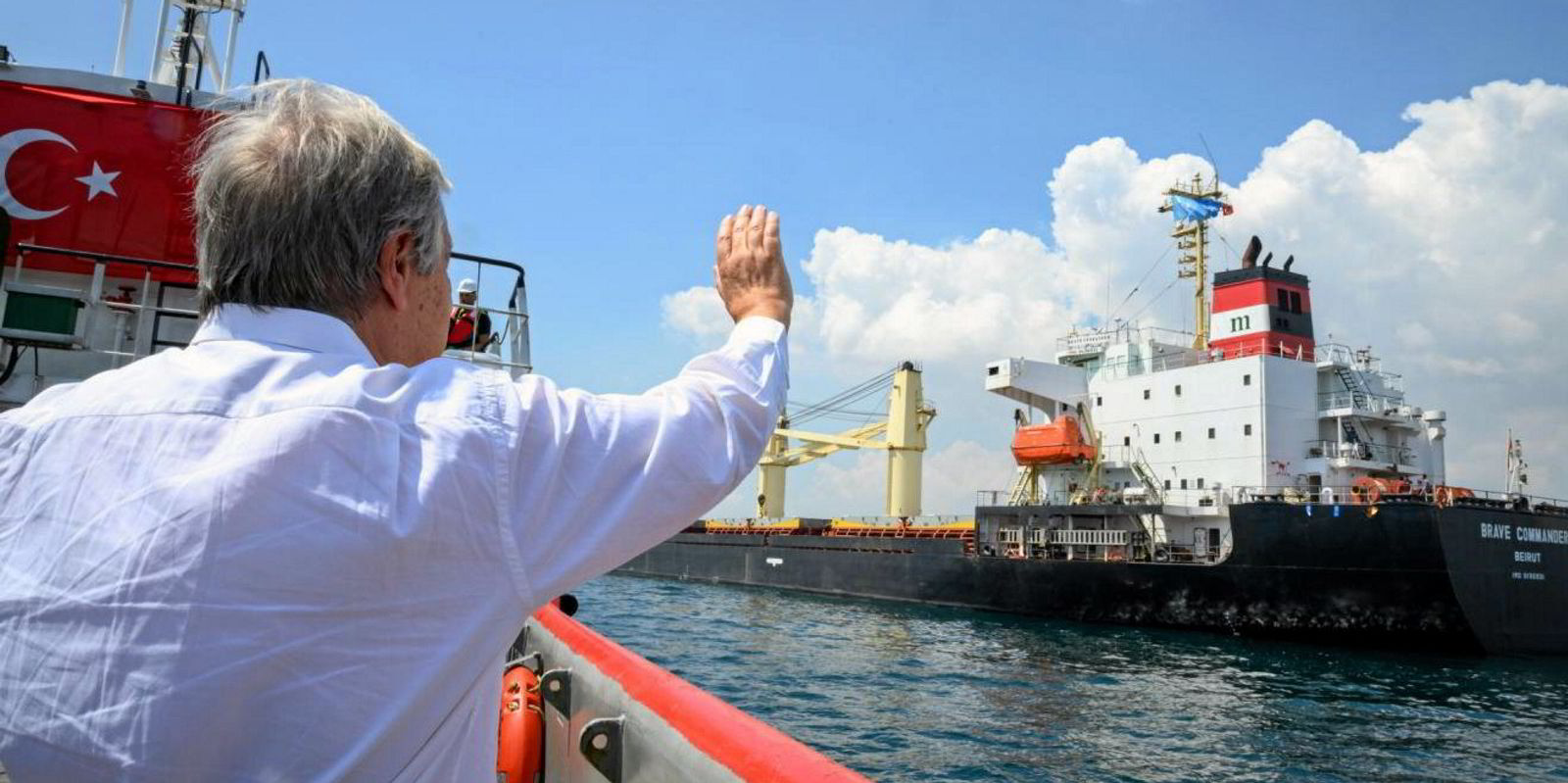
Given ample food reserves in other parts of the world, a suspension or cancellation of the Black Sea Grain Initiative is not expected to lead immediately to any global food shortage or price increases.
On the other hand, it would definitely stretch supplies, especially if other bottlenecks in food production arise elsewhere later this year.
It is particularly worrying that the disruption in the initiative comes as the grain harvest in the Black Sea is beginning. Shipbrokers have said late last month that Ukraine is already sitting on more than 10m tonnes of unsold grain it can only distribute with great difficulty over alternative river or onshore routes.
In terms of shipping, the gradual wind-down of the grain initiative has already diverted a number of general cargoships, handysizes, supramaxes and panamaxes to other trades, increasing vessel supply and putting pressure on freight rates.
If Russia decides to pull the plug on the grain iniative, it is far from certain that an alternative can be found, given that only very daring shipowners will likely rely on eventual NATO protection for convoys under the threat of Russian mines and port bombardment.
Meanwhile, and despite Moscow’s protests about broken UN pledges to lift hurdles on its own agricultural exports, Moscow has been able to keep selling much of its grain abroad, to friendly or neutral countries.
Some of these exports have even been from fields and ports in the Russian-occupied areas of Ukraine.
